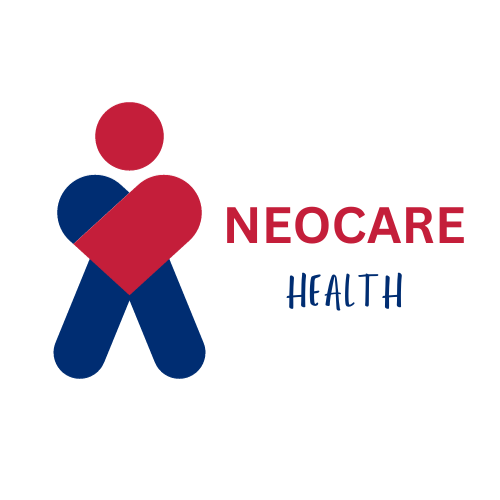The Essential Guide to Neonatal Care: What Every Parent Needs to Know
Introduction to Neonatal Care
Neonatal care, a critical domain within paediatric healthcare, focuses exclusively on the medical needs and concerns of newborn infants, particularly those born prematurely, with low birth weights, or with medical conditions requiring special attention. This introductory section sheds light on the origins and evolution of neonatal care, highlighting its significance in ensuring the health and well-being of the youngest and most vulnerable patients. As we embark on this comprehensive journey, we aim to demystify the complexities surrounding neonatal care, empowering parents with knowledge and confidence.
The transition from intrauterine to extrauterine life poses various challenges for a newborn, necessitating a range of care strategies to address these unique needs. Neonatal care encompasses both preventative measures and active interventions to support the physiological and developmental requirements of newborns. Understanding the scope of neonatal care is fundamental for parents and caregivers, offering insights into the meticulous attention and specialised services these infants receive during their initial days and weeks of life.
Moreover, the importance of neonatal care extends beyond immediate medical interventions. It encompasses a holistic approach that includes nurturing, bonding, and emotional support, facilitating a positive start to the intricate journey of parenting. As we delve deeper into the subject, it becomes evident that neonatal care is not solely the purview of healthcare professionals but is a collaborative endeavour involving families and communities, all working towards the common goal of safeguarding our future generations.
The Importance of Neonatal Care for Newborns
The significance of neonatal care cannot be overstated, with its impact resonating through the lives of newborns and their families. This section explores the pivotal role of neonatal care in supporting the health, growth, and development of newborns, emphasising its contribution to reducing infant mortality rates and enhancing quality of life. Through a blend of expert knowledge and compassionate care, neonatal healthcare professionals play a crucial role in nurturing the potential of each newborn, laying the foundation for a healthy future.
In the realm of neonatal care, early detection and intervention are key principles. The ability to identify and address health issues in the neonatal period can dramatically alter the trajectory of a child’s life, preventing complications and promoting optimal development. This proactive approach underscores the value of neonatal care in not only treating medical conditions but also in preventing their long-term consequences, affirming its role as a cornerstone of paediatric healthcare.
Furthermore, neonatal care serves as a support system for families, guiding them through the complexities of caring for a newborn with special health needs. The reassurance and education provided by neonatal care teams are invaluable, bridging the gap between medical expertise and parental concerns. This collaborative relationship fosters a nurturing environment conducive to the holistic well-being of both the infant and the family, highlighting the multifaceted importance of neonatal care.
Common Neonatal Health Issues
Addressing common neonatal health issues is a fundamental aspect of neonatal care, with a wide array of conditions affecting newborns. This section delves into the prevalence and impact of various neonatal health challenges, such as prematurity, respiratory distress syndrome, jaundice, and infections. By understanding these conditions, parents and caregivers can better advocate for their infants, seeking timely and appropriate care.
Prematurity, defined as birth before 37 weeks of gestation, stands as a leading cause of neonatal morbidity and mortality. Premature infants often face a host of health issues, including underdeveloped organs and immature immune systems, necessitating specialised care and monitoring. The management of such fragile patients exemplifies the complexity and importance of neonatal care, underscoring the need for advanced medical interventions and supportive therapies.
Respiratory distress syndrome, another common neonatal condition, arises from the insufficient production of surfactant, a substance crucial for lung function. This condition highlights the intricate balance required in neonatal care, balancing the need for immediate respiratory support with the long-term goal of ensuring healthy lung development. Similar attention is required for managing jaundice, a condition marked by high bilirubin levels, which, if untreated, can lead to serious neurological complications.
Infections, whether acquired in utero, during delivery, or after birth, pose significant risks to newborns. The neonatal immune system, still in its developmental stage, is particularly vulnerable to bacteria, viruses, and fungi, making infections a critical focus of neonatal care. The prompt recognition and treatment of infections are paramount, demonstrating the vigilance and expertise required in neonatal healthcare.
Essential Newborn Care Practices
Essential newborn care practices form the backbone of neonatal health, promoting the well-being of all newborns through universally recommended interventions. This section outlines the core components of essential newborn care, including thermal protection, breastfeeding, hygiene measures, and routine screening. These practices, rooted in evidence-based medicine, are designed to support the physiological and emotional needs of newborns, setting the stage for healthy growth and development.
Thermal protection, crucial for maintaining the newborn’s body temperature, involves strategies such as skin-to-skin contact and appropriate swaddling. These simple yet effective measures can significantly reduce the risk of hypothermia, a common and potentially dangerous condition for newborns. Similarly, breastfeeding, with its myriad health benefits, is strongly advocated within neonatal care, providing optimal nutrition, enhancing immune function, and fostering maternal-infant bonding.
Hygiene measures, including proper handwashing and cord care, play a crucial role in preventing infections, further illustrating the holistic approach of neonatal care. Routine screening for congenital conditions and hearing loss, among others, facilitates early detection and intervention, exemplifying the proactive nature of neonatal healthcare. Collectively, these essential practices embody the commitment to safeguarding the health and well-being of newborns from the outset.
Understanding the Role of Neonatal Nurses
Neonatal nurses, with their specialised skills and unwavering dedication, are at the heart of neonatal care. This section celebrates the vital contributions of neonatal nurses, exploring their roles in providing direct patient care, supporting families, and collaborating with multidisciplinary teams. The expertise and compassion of neonatal nurses underpin the quality of care delivered to newborns, reflecting the depth of their commitment to this vulnerable population.
In the neonatal intensive care unit (NICU), neonatal nurses assume a myriad of responsibilities, from administering medications and monitoring vital signs to performing complex procedures. Their technical proficiency is matched by their emotional intelligence, offering comfort and reassurance to anxious parents navigating the challenges of neonatal health issues. The ability of neonatal nurses to blend clinical excellence with empathetic care is a hallmark of their profession, showcasing the profound impact they have on the lives of newborns and their families.
Moreover, neonatal nurses play a pivotal role in educating parents and caregivers, equipping them with the knowledge and skills needed to care for their infants. This aspect of their work extends the reach of neonatal care beyond the hospital setting, fostering a supportive network for families. The collaboration between neonatal nurses and other healthcare professionals, including paediatricians and neonatologists, further exemplifies the team-oriented approach essential to neonatal care, underscoring the invaluable role of neonatal nurses in this specialised field.
Neonatal Care at Home: Tips for Parents
Transitioning to home care is a significant milestone for newborns and their families, marking the beginning of a new chapter in their journey. This section provides practical tips for parents to navigate the challenges of neonatal care at home, emphasising the importance of creating a safe and nurturing environment. From establishing a routine to recognising signs of illness, these guidelines aim to empower parents with confidence and competence in caring for their newborns.
Creating a safe sleeping environment is paramount, adhering to guidelines that reduce the risk of sudden infant death syndrome (SIDS). This includes placing the baby on their back to sleep, using a firm mattress, and avoiding soft bedding and toys in the crib. Additionally, maintaining a smoke-free home and ensuring proper immunisations are crucial steps in safeguarding the newborn’s health.
Feeding and nutrition are central to neonatal care at home, with breastfeeding recommended as the optimal source of nutrition for most infants. Parents should also be vigilant in monitoring their newborn’s weight gain and hydration, seeking professional advice as needed. Recognising signs of illness, such as fever, lethargy, or difficulty breathing, and responding promptly by consulting healthcare providers, is essential for the well-being of the newborn.
Furthermore, parents should prioritise their own well-being, acknowledging the physical and emotional demands of caring for a newborn. Seeking support from family, friends, and healthcare professionals can alleviate stress and enhance the overall care provided to the newborn. This holistic approach to neonatal care at home fosters a supportive and healthy environment for both the infant and the family.
Neonatal Care in the Hospital: What to Expect
For many newborns and their families, the initial days and weeks of life may be spent in the hospital, particularly if specialised care is required. This section demystifies the hospital experience, offering insights into what families can expect during their stay. Understanding the environment, routines, and care processes within the neonatal unit can alleviate concerns and facilitate a smoother transition for both the newborn and the family.
The neonatal intensive care unit (NICU) is equipped with advanced technology and staffed by a multidisciplinary team dedicated to the care of newborns with special health needs. Families can expect to encounter a range of medical equipment, from incubators to monitors, all designed to support the health and development of their infant. The NICU team, including neonatologists, neonatal nurses, and other specialists, works collaboratively to provide comprehensive care, tailoring interventions to meet the unique needs of each newborn.
Families are encouraged to be actively involved in their newborn’s care, participating in decision-making and caregiving activities as appropriate. This family-centred approach recognises the integral role of parents and caregivers in the neonatal care team, fostering a partnership that benefits the newborn. Communication with healthcare professionals is key, ensuring that families are informed, supported, and empowered throughout their hospital stay.
The hospital experience can be emotionally challenging for families, marked by moments of uncertainty and hope. Support services, including counselling and parent support groups, are available to help families navigate this complex journey. The goal of neonatal care in the hospital is not only to address the immediate medical needs of the newborn but also to prepare families for the transition to home care, laying the groundwork for a successful continuation of care.
Neonatal Care Resources and Support for Parents
Access to reliable resources and support networks is invaluable for parents navigating the intricacies of neonatal care. This section highlights a variety of resources available to families, from educational materials to support groups and online communities. Leveraging these resources can enhance parents’ understanding of neonatal care, providing guidance and reassurance during this critical period.
Educational materials, including books, pamphlets, and online content, offer a wealth of information on neonatal health issues, care practices, and developmental milestones. Healthcare providers are a primary source of accurate and tailored advice, complemented by reputable websites and organisations dedicated to paediatric and neonatal health. These resources empower parents with knowledge, enabling them to make informed decisions and advocate effectively for their newborns.
Support groups, both in-person and online, provide a platform for parents to share experiences, challenges, and triumphs. The solidarity and understanding found within these communities can be a source of comfort and strength, reducing feelings of isolation and anxiety. Additionally, counselling services are available to support the emotional well-being of parents and families, addressing the psychological impact of neonatal health issues and hospitalisation.
Furthermore, advocacy organisations play a crucial role in raising awareness of neonatal care issues, promoting research, and influencing policy. Engaging with these organisations can offer parents opportunities to contribute to the broader neonatal care community, fostering a sense of purpose and connection. Collectively, these resources and support networks form a comprehensive ecosystem, enhancing the quality of care and support available to newborns and their families.
Neonatal Care Advancements and Research
The field of neonatal care is dynamic, with ongoing advancements and research driving improvements in outcomes for newborns. This section explores recent developments in neonatal care, including innovative treatments, technological breakthroughs, and research initiatives. These advancements reflect the commitment of the medical community to enhancing the quality and effectiveness of care for the most vulnerable patients.
Innovative treatments, such as new surfactant therapies for respiratory distress syndrome and advanced nutritional support for premature infants, exemplify the progress being made in addressing common neonatal health issues. Technological breakthroughs, including non-invasive monitoring devices and telemedicine services, are improving the efficiency and accessibility of neonatal care, enabling earlier detection and intervention.
Research initiatives play a pivotal role in advancing neonatal care, with studies exploring a wide range of topics from genetic factors influencing neonatal health to the long-term outcomes of neonatal interventions. Collaboration among researchers, clinicians, and families is essential to the success of these initiatives, ensuring that research findings are translated into practical improvements in care.
The future of neonatal care is promising, with continued innovation and research poised to further enhance the health and well-being of newborns. The dedication of the neonatal care community to exploring new frontiers and challenging existing paradigms underscores the dynamic nature of this field, offering hope and reassurance to families.
Conclusion: Ensuring the Best Start for Your Newborn
In conclusion, neonatal care represents a critical component of paediatric healthcare, dedicated to ensuring the best possible start for newborns. From the intricacies of managing common health issues to the adoption of essential care practices, the field of neonatal care is both complex and rewarding. The role of neonatal nurses, coupled with the support and resources available to parents, underscores the collaborative nature of this endeavour. As advancements in research and technology continue to push the boundaries of what is possible, the future of neonatal care looks brighter than ever.
For parents and caregivers, navigating the neonatal care journey can be challenging, yet profoundly rewarding. Armed with knowledge, supported by healthcare professionals, and bolstered by a community of fellow parents, the path towards ensuring the health and well-being of your newborn becomes more navigable. Remember, you are not alone in this journey; a wealth of resources and support is available to guide and assist you every step of the way.
As we reflect on the essential guide to neonatal care, let us reaffirm our commitment to providing the best possible care for our newborns. Together, we can ensure that every child receives the nurturing, care, and support necessary to thrive from the very beginning.










